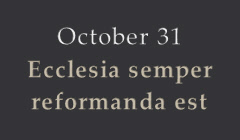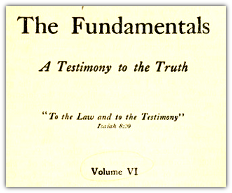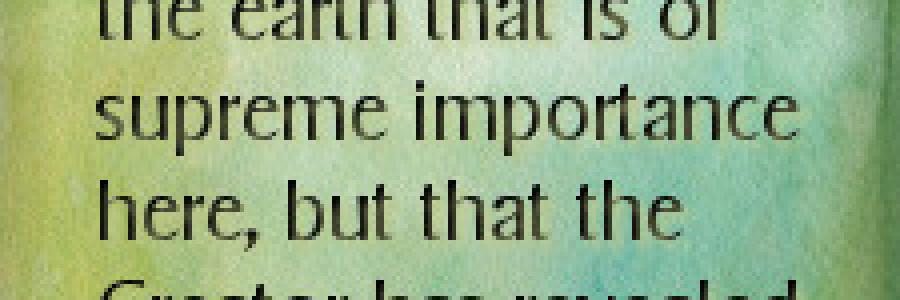The Early Narratives of Genesis
CHAPTER VI: THE EARLY NARRATIVES OF GENESIS
Discussion
Answering Richard Dawkins, Part 2
Read Part 1.
Dawkins Argument #2
There are of course gaps in the fossil record. In the case of the Turbellaria, a large, flourishing and beautiful group of free-living flatworms, the fossil record is one big gap—there are no fossils—and not even a Young Earth Creationist thinks they were created yesterday. But although there are gaps in the fossil record, it is a very telling fact that not a single fossil has ever been found in the wrong place in the time sequence. To paraphrase JBS Haldane, not a single fossil rabbit has ever been found in the Precambrian.1
Wingnut Response #2
Dawkins’ argument is an abbreviation of an argument that appears in The Greatest Show on Earth: The Evidence for Evolution, and it is not a scientific argument at all. Rather, it is a logical one. Creationists have critiqued evolutionary theory in part because of gaps in the fossil record, concluding that if evolution were in fact happening there would be a fairly steady fossil record—a predictable trail of bread crumbs, if you will. But there isn’t such regularity. Dawkins admits this inconsistency, but he downplays its significance by emphasizing another fossil anomaly: the absence of a substantial fossil record for the (4000 varieties of) turbellarian flatworms.
Discussion
Answering Richard Dawkins, Part 1
I appreciate Dr. Richard Dawkins’ impassioned arguments against creationism, as he challenges his listeners and readers to think through their positions and to offer sound reasons for their conclusions. My focus here is not to argue against his atheism, but is to answer his arguments that creationism is not a plausible understanding of our origin history. Sadly, it appears that Dawkins won’t be debating any creationists in the near future, as he is reluctant to give “wingnuts the oxygen of publicity and the respectability of being seen on a platform with a real scientist, anywhere.”1 Nonetheless Dawkins, in the context of discussing the Ken Ham, Bill Nye debate on creationism, offers five points of candid and insightful advice to “anyone who, for one reason or another finds him/herself debating one of those idiots.” In this series I, Wingnut, consider Dawkins’ five-pronged critique of creationism.
Dawkins Argument #1
Physical scientists (such as Bill Nye) should play to their strengths in physical science and call the wingnut out on the age of fossils, and cosmological evidence on the age of the universe. Radiometric dating of rocks is solid, irrefutable science. The agreement between different isotopes with overlapping time spans is so strong, it is impossible for anyone to wriggle out of the conclusion that the world is billions of years old, not thousands. Astronomical evidence of the expanding universe agrees.
Discussion
Bryan College takes stand on creation that has professors worried for their jobs
Body
“The board of trustees is requiring professors and staff to sign a statement saying that they believe Adam and Eve were created in an instant by God and that humans shared no ancestry with other life forms.” Bryan College takes stand on creation that has professors worried for their jobs
Discussion
DNA discovery illustrates creation’s complexity
Body
“Researchers have found a second layer of information embedded in DNA, refueling a debate between proponents of Darwinism and intelligent design.” WORLD
(See also Stunned Scientists Find ‘Duons’)
Discussion
The Creation Reformation
 Why should we celebrate October 31?
Why should we celebrate October 31?
For hundreds of years, people of the western world have attributed spiritual significance to the last day of October and the first day of November.
But “doctrines of demons” (1 Tim. 4:1, NKJV) governed the celebration of these days during the Dark Ages, until God brought light out of this darkness through the pen and voice of a humble monk and priest—Martin Luther.
 (
(


Discussion